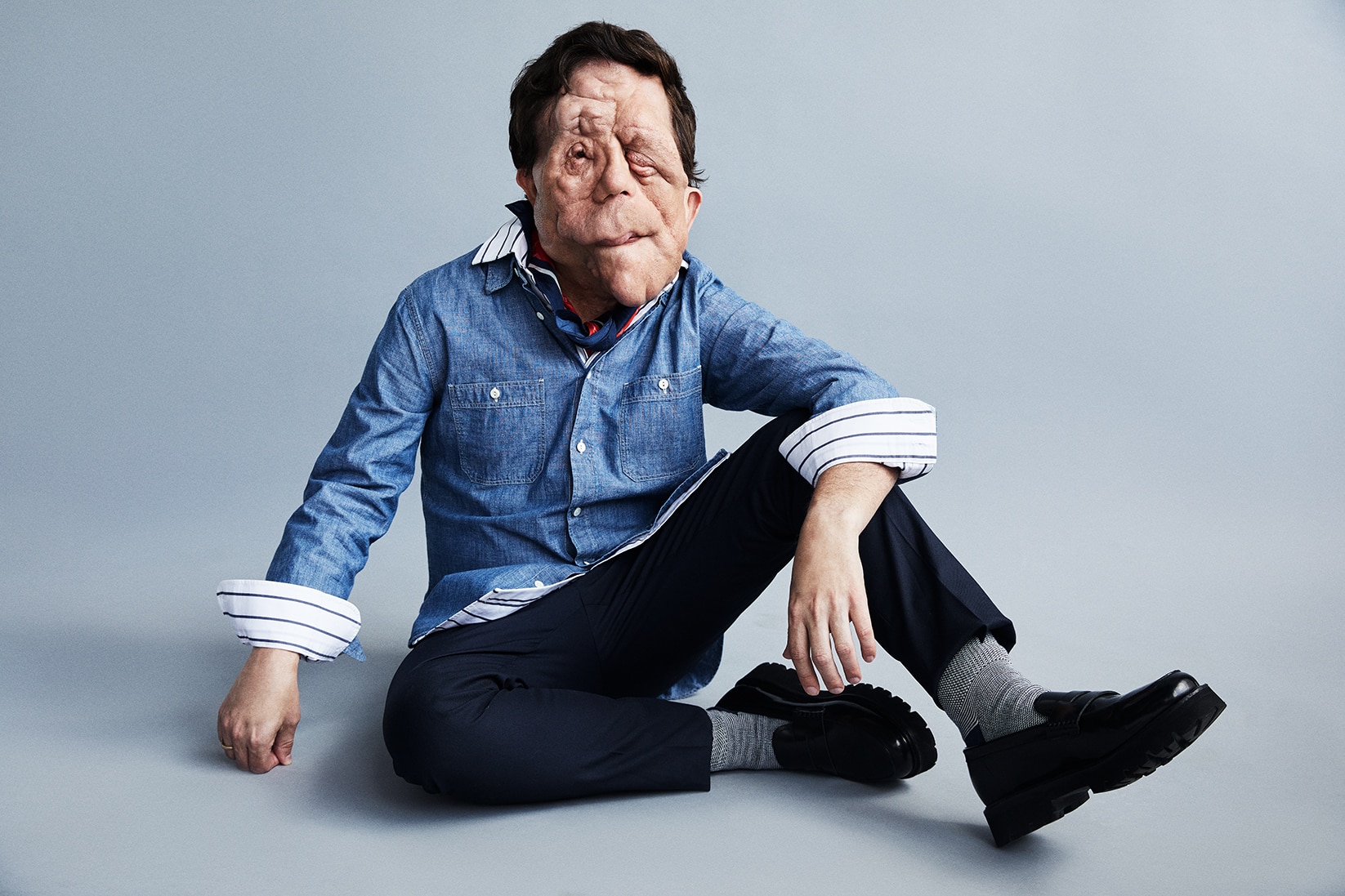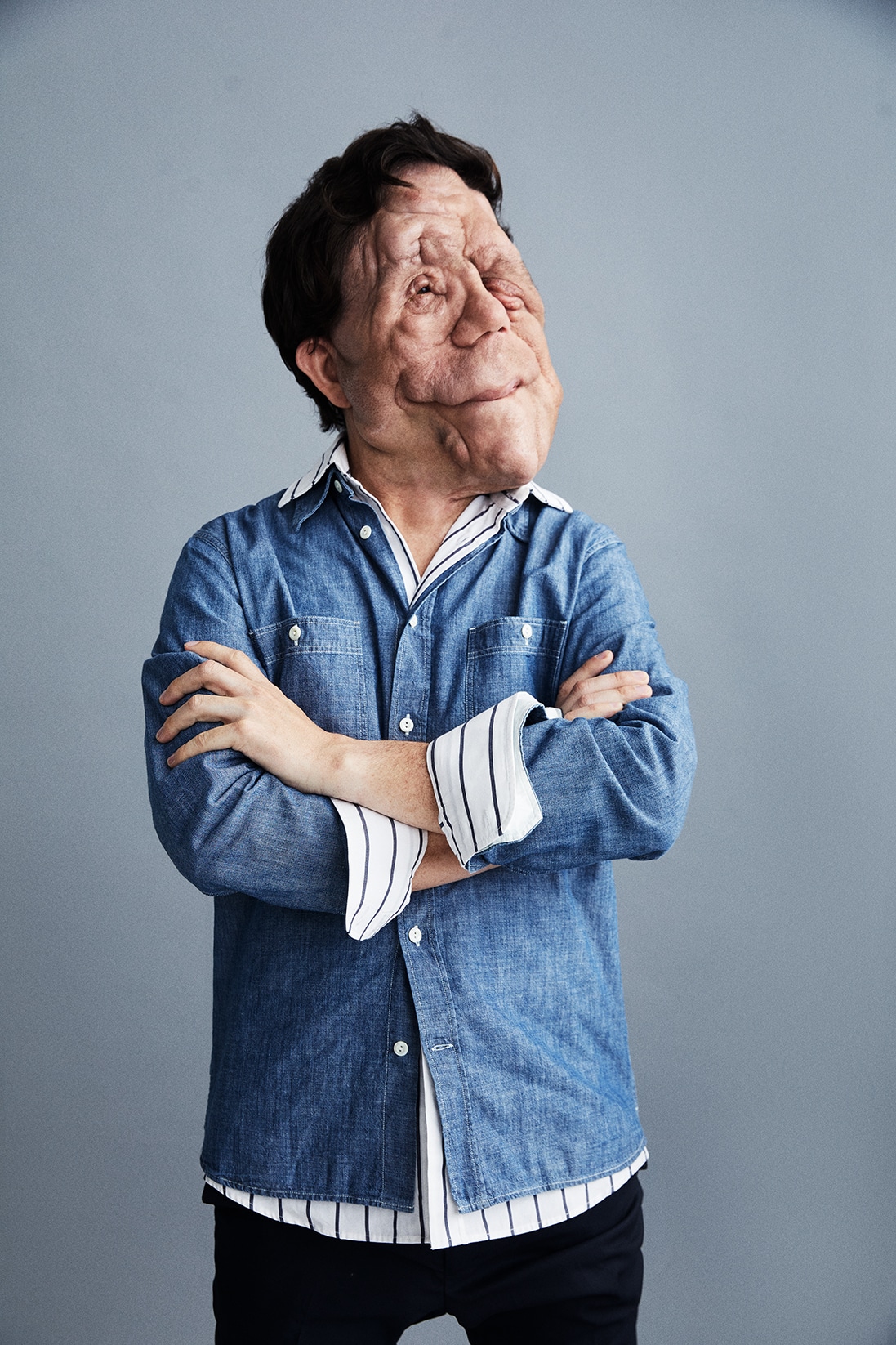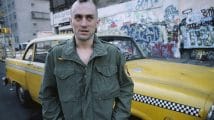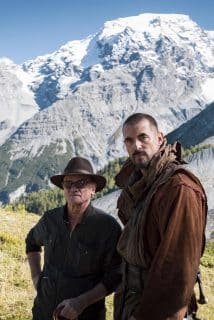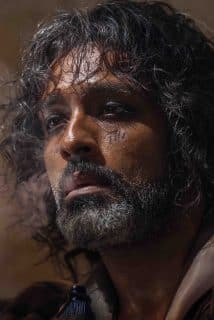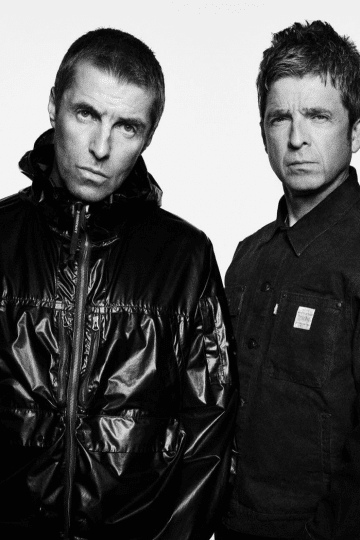Adam Pearson on Sebastian Stan and ‘A Different Man’
Culture
Adam Pearson talks to us about our film of the year, 'A Different Man', and tells us "with this kind of thing you have to be honest to the point of visceral."
A Different Man is in our top one of films of the year. Unless Gladiator II turns out to be a darky funny surrealist comic trip through the fractured Shakespearean psyches of the human mind, things will remain that way.
In case you haven’t seen it, it stars Sebastian Stan as Edward, and… well let’s let one of the stars and the brilliant man who is the subject of this interview, Adam Pearson, to set the scene, since he has a way with words to say the least:
“A Different Man is a psychological thriller/dark comedy, distributed by A24 and Universal. And it about a man called Edward, played by Sebastian Stan, who is a an actor with neurofibromatosis type one who has a new neighbour move in, who’s a playwright. They sort of form a relationship.
And then he gets this ‘miracle cure’ and winds up looking like Sebastian Stan. He essentially creates a new life, reconnects with his neighbour Ingrid, played by Renate Reinsve, who’s written a play based on his own life.
He auditions for it, gets it. But then my character Oswald comes in with the same condition. He’s got a completely different outlook, he’s a happy, jokey life of the party and sort of hijacks his life.
Sebastian’s character becomes obsessed with Oswald and it’s this great story of identity, jealousy, self-acceptance, it it’s doing well and we’re all really happy with it.”
Indeed it is doing well, which is immensely pleasing since, without any spoilers, it is messed up in all the best ways, as well as funny, moving and unforgettable. It’s directed by Aaron Schimberg, who worked, and became friends, with Pearson on the acclaimed Chained For Life and wanted to write something for him.
“He just approached me and said, ‘Would you work with me again?’ I had no problem saying Ding Ding, Round two, Let’s absolutely do this. So he then went away and wrote the thing, and I think it’s important that you let writers go away and write and direct. Otherwise, you end up suffering from death by studio or death by 1000 stupid opinions, which happens way too much in the film industry. He sent me the script. I read it, I loved it. I was like, ‘Yeah, we’re doing Kaufman!”
The film certainly does bear passing resemblance to the oeuvre of Charlie Kaufman, due to its willingness not to give a shit about how films are supposed to work and just doing its own mindfuckery. Yet it also has a Hitchcockian edge, and the added element of Adam, who is a revelation, easily a match for the now A-List Stan (also playing a similar disturbed character in the film The Apprentice, right now).
You’ll know Adam from his excellent documentaries in which he deals with life with neurofibromatosis type one – like The Ugly Face of Disability Hate Crime – and from his first film role as one of Scarlett Johannsen’s victims in Under the Skin. But in A Different Man you see the full flourishing of his on-screen charisma. “I think I’m at that stage now where I’m happy to call myself an actor and go into knowing that I’m good enough to be there,” he says.
The film was greenlit quickly and shoot was done in 22 days, and it seems the intensity was something that made Adam particularly thrive.
“Heat and pressure that makes coal into diamonds, and I really like that pressure.
There’s a lot of moving parts to it, so you turn up prepared or don’t turn up at all.”
His and Stan’s relationship is of course crucial to the film, and they pair become close: “We had a lot of really long Zoom chats early on, about the process and the character work and the back stories. He’s just a really kind and funny, very smart actor.
He makes very bold choices and knows exactly who he is and what he wants to do. And I have this attitude where if you want to learn to do something really well, you find people that do it better than you and just sit under the learning tree. I very fortunate to have Sebastian Stan and Renate Reinsve as co-stars on this one. I love him to bits, he’s a really good mate now.”
In terms of the depiction of neurofibromatosis type one, Adam says he discussed his own life with Sebastian: “I just told about my childhood, my upbringing, what my day to day is like. I think unless you’re all willing to go into this kind of endeavour and be really honest to the point of being visceral, then there’s absolutely no point in doing it.
If we as artists can’t be honest and emotionally vulnerable with each other, we’ve got no right to ask an audience to let their guard down when it comes to seeing a thing. I think that level of respect has to go fully around the entire project. And I think that’s why we clicked so well, we just did all the heavy lifting straight away so that when we got to New York for filming, we both knew that it’s Go time.”
He says there were a few things about his own experiences that he felt were most important for Sebastian to capture:
“The one golden thread that I gave him – and I can only really speak to my own experience and knowledge base. I don’t like the idea that I’m speaking for a community because I’m not – but what I said to him was that for me, the two easiest ways to lose your anonymity in a society and almost become public property is to either have a disability or become famous.
I said, ‘You’ll never know what I experience, the level of invasiveness that happens with the staring, the point when the camera phones come up and everyone’s thinking they own you, and that you owe them a blow by blow of your life.’
‘But you do know what it’s like to be harassed by paparazzi and to have the Internet say what they want about you. So lean into that as much as you can.’
We had to get his prosthetics done quite early on in shooting days because our makeup artist Mike Marino, who’s a genius, had another job on.
So Sebastian went out and about in the prosthetics, to the same places he would normally go to and order coffee. And from that he learned – and these are his words, not mine – that people aren’t very good liars, and you can always tell what people are thinking at any given moment.’
Adam wasn’t actually ever on set when Sebastian was in full make-up, and he quips, “I regard that as the greatest selfie never taken.”
The actual role of Oswald, as far from your typical depiction of disability as you can get, was one which Adam says he took a lot from: “When you see disability, it tends to fall into one of three tropes: either victim, villainy or false heroism.
So to play, you know, just a dude who’s out there, who is charismatic and successful and whose disability is rarely mentioned throughout his entire onscreen presence in the film, was really refreshing and really unique.
I could show it as an actor and come to work and flex it all, and that was just a really, refreshing experience for me.”
This is one of the key triumphs of the film, managing to deal with complicated emotions around disability without exploitation and indeed with incredible flair and humanity – and a devious darkness. It has a certain wit to it that Adam shares, like when I ask him if he has hard plans for his career: “You have to get your name out there in all the good ways possible, but by the same token you need to be smart about it. A lot of my friends ask me, ‘How do I become famous?’ I’m like, ‘Well, if you want to be famous, kill a prostitute. But if you want to be respected, just get really, really good at what you do and do it well and don’t settle for second best.
As I said, it’s about making smart decisions, getting in front of the right people, getting in the right room, and also learning when to say no when you’ve gotten an email or a script and it’s bad. Like you have a feeling in the pit of your stomach that if I say yes to this, I’ll be betraying myself a little bit.
You have to learn to recognise that voice in your head and having the confidence and the conviction to listen to it.”
In terms of looking after his mental health, he says the key for him is a good network around him, both professionally and with his family. “My mother always says that I’m not famous in her house,” he says, “And I try to remind her that’s not how fame works. ‘I’m absolutely famous in your house, you just don’t care.’”
He’s also stopped so much of his social media usage and has also reaped the rewards of looking after the basics: “It is going to sound really rudimentary, but I eat well and sleep and it just really helps. You’re not tired and lethargic and out of your mind on energy because you didn’t get enough sleep the night before. If you’re too busy to sleep, you’re too busy.”
As for the future, he can’t reveal his next projects but you get the sense that he quite rightly wants to enjoy A Different Man for a while. As should the rest of the world. “The director, Aaron, says ‘If you think it’s a comedy, good. Also, if you think it’s a tragedy, I’m not gonna disagree with you.’ The way I’ve been wording it is that I think good cinema will change what you think for a couple of weeks and great cinema will change how you think for the rest of your life. We’re very much in the great cinema business and as long as people come out differently to when they went in…”
A Different Man is in cinemas now and streaming soon
Trending

Join The Book of Man
Sign up to our daily newsletters to join the frontline of the revolution in masculinity.




